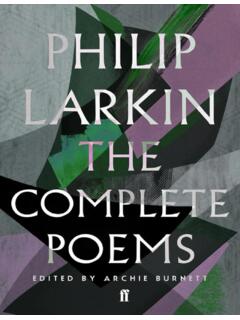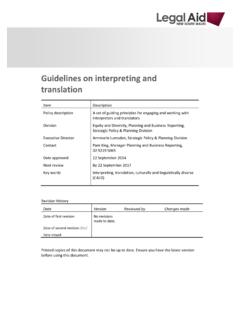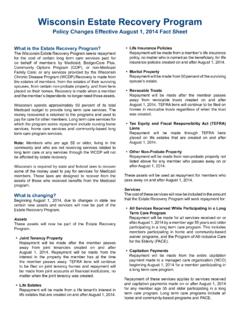Transcription of Translation Studies, Third Edition - literariness.org
1 Translation studies In the late 1970s a new academic discipline was born: Translation studies . We could not read literature in Translation , it was argued, without asking ourselves if linguistics and cultural phenomena really were translatable' and exploring in some depth the concept of equivalence'. When Susan Bassnett's Translation studies appeared in the New Accents series, it quickly became the one introduction every student and interested reader had to own. Professor Bassnett tackles the crucial problems of Translation and offers a history of Translation theory, beginning with the ancient Romans and encompassing key twentieth-century work.
2 She then explores specific problems of literary Translation through a close, practical analysis of texts, and completes her book with extensive suggestion for further reading. Twenty years after publication, the field of Translation studies continues to grow, but one thing has not changed: updated for the second time, Susan Bassnett's Translation studies remains essential reading. Susan Bassnett is Professor of Comparative Literary studies in Translation , the Centre for Comparative Cultural studies at the University of Warwick.
3 IN THE SAME SERIES. Altemative Shakespeares ed. John Drakakis Alternative Shakespeares: Volume 2 ed. Terence Hawkes Critical Practice Catherine Belsey Deconstruction: Theory and Practice Christopher Norris Dialogue and Difference: English for the Nineties ed. Peter Brooker and Peter Humm The Empire Writes Back: Theory and Practice in Post-Colonial Literature Bill Ashcroft, Gareth Griffiths and Helen Tiffin Fantasy: The Literature of Subversion Rosemary Jackson Dialogism: Bakhtin and his World Michael Holquist Formalism and Marxism Tony Bennett Making a Difference: Feminist Literary Criticism ed.
4 Gayle Green and Copp lia Kahn Metafiction: The Theory and Practice of Self-Conscious Fiction Patricia Waugh Narrative Fiction: Contemporary Poetics Shlomith Rimmon-Kenan Orality and Literacy: The Technologizing of the Word Walter The Politics of Postmodernism Linda Hutcheon Post-Colonial Shakespeares ed. Ania Loomba and Martin Orkin Reading Television John Fiske and John Hartley The Semiotics of Theotre and Drama Keir Elam Sexual/Textual Politics: Feminist Literary Theory Toril Moi Structuralism and Semiotics Terence Hawkes Studying British Cultures: An Introduction ed.
5 Susan Bassnett Subculture: The Meaning of Style Dick Hebdige iii Telling Stories: A Theoretical Analysis of Narrative Fiction Steven Cohan and Linda Susan Bassnett Translation studies Third Edition LONDON AND NEW YORK. First published in 1980 by Methuen & Co. Ltd Simultaneously published in the USA and Canada by Routledge 29 West 35th Street, New York, NY 10001. Second Edition first published 1991. This Edition first published 2002. Routledge is on imprint of the Taylor & Francis Group This Edition published in the Taylor & Francis e-Library, 2005.
6 To purchase your own copy of this or any of Taylor & Francis or Routledge's collection of thousands of eBooks please go to . 1980, 1991, 2002 Susan Bassnett All rights reserved. No part of this book may be reprinted or reproduced or utilised in any form or by any electronic, mechanical, or other means, now known or hereafter invented, including photocopying and recording, or in any information storage or retrieval system, without permission in writing from the publishers. British Library Cataloguing in Publication Data A catalogue record for this book is available from the British Library Library of Congress Cataloging in Publication Data A catalog record for this book has been requested ISBN 0-203-42746-7 Master e-book ISBN.
7 ISBN 0-203-44079-X (Adobe eReader Format). ISBN 0-415-28013-3 (Hbk). ISBN 0-415-28014-1 (Pbk). For my father, who made it all possible. CONTENTS. GENERAL EDITOR'S PREFACE ix ACKNOWLEDGEMENTS xi Preface to the Third Edition 1. Introduction 12. 1 Central issues 22. Language and culture 22. Types of Translation 23. Decoding and recoding 24. Problems of equivalence 32. Loss and gain 38. Untranslatability 39. Science or secondary activity'? 44. 2 History of Translation theory 47. Problems of period study' 47. The Romans 50. Bible Translation 53.
8 Education and the vernacular 57. Early theorists 60. The Renaissance 62. The seventeenth century 65. viii The eighteenth century 67. Romanticism 70. Post-Romanticism 72. The Victorians 74. Archaizing 77. The twentieth century 78. 3 Specific problems of literary Translation 82. Structures 82. Poetry and Translation 86. Translating prose 114. Translating dramatic texts 123. Conclusion 136. NOTES 139. SELECT BIBLIOGRAPHY 149. APPENDIX: THE ORIGINAL TEXT OF THE 166. SEAFARER. INDEX 170. GENERAL EDITOR'S PREFACE. No doubt a Third General Editor's Preface to New Accents seems hard to justify.
9 What is there left to say? Twenty-five years ago, the series began with a very clear purpose. Its major concern was the newly perplexed world of academic literary studies , where hectic monsters called Theory', Linguistics' and Politics' ranged. In particular, it aimed itself at those undergraduates or beginning postgraduate students who were either learning to come to terms with the new developments or were being sternly warned against them. New Accents deliberately took sides. Thus the first Preface spoke darkly, in 1977, of a time of rapid and radical social change', of the erosion of the assumptions and presuppositions' central to the study of literature.
10 Modes and categories inherited from the past' it announced, no longer seem to fit the reality experienced by a new generation'. The aim of each volume would be to encourage rather than resist the process of change' by combining nuts-and-bolts exposition of new ideas with clear and detailed explanation of related conceptual developments. If mystification (or downright demonisation) was the enemy, lucidity (with a nod to the compromises inevitably at stake there) became a friend. If a distinctive discourse of the future' beckoned, we wanted at least to be able to understand it.








